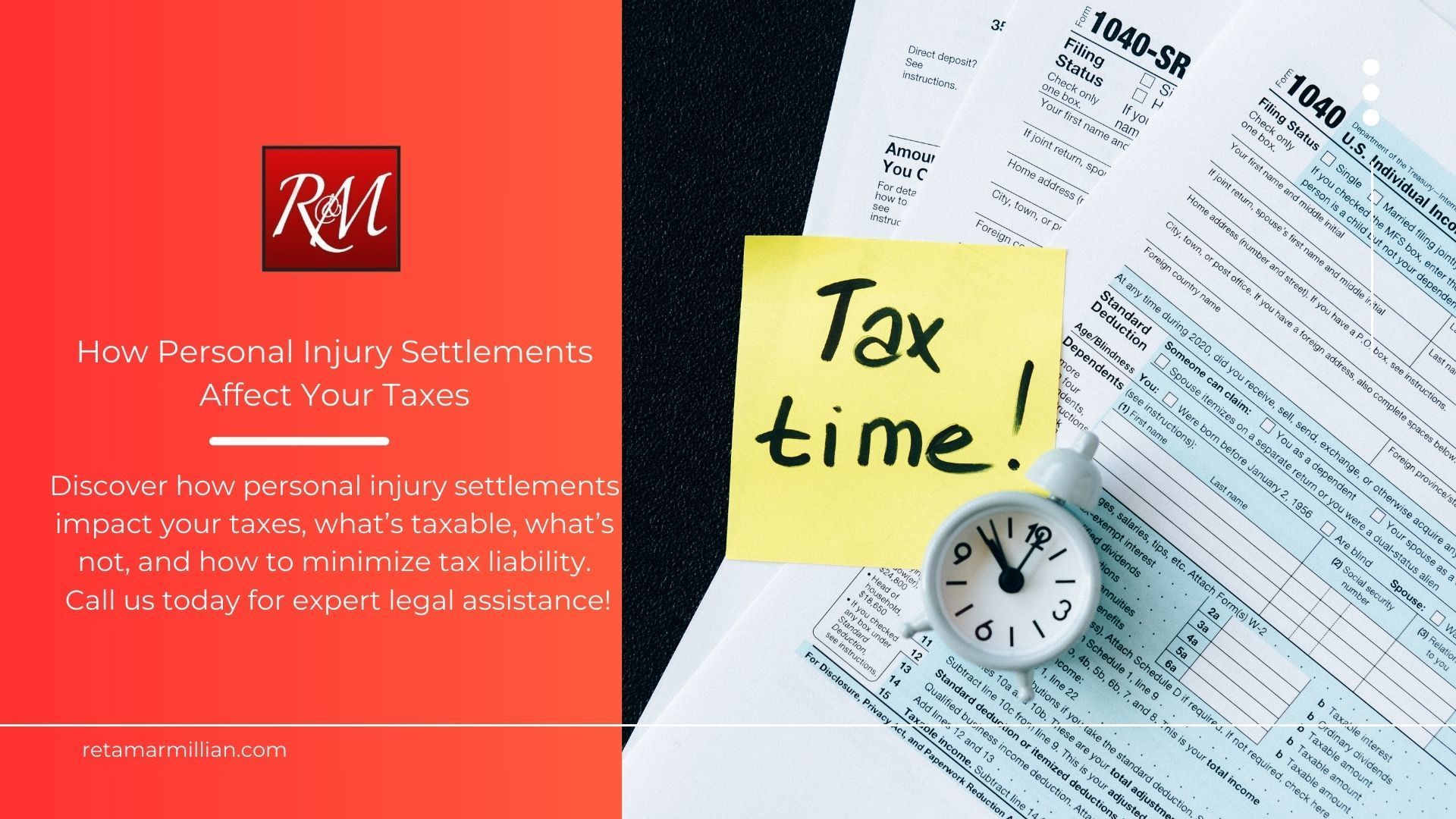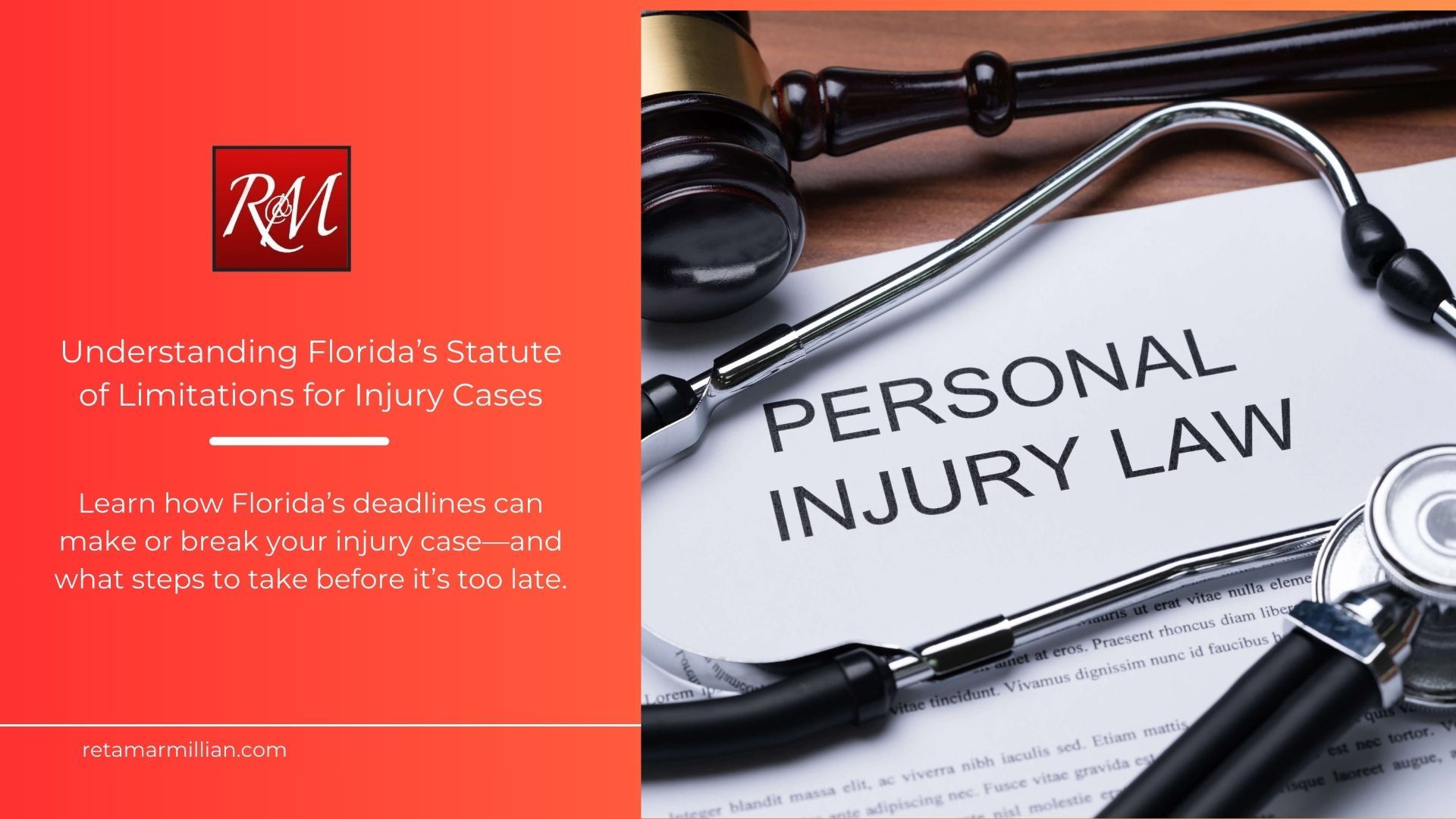How Personal Injury Settlements Affect Your Taxes
Discover how personal injury settlements impact your taxes, what’s taxable, what’s not, and how to minimize tax liability. Read more.

Understanding the Tax Implications of Personal Injury Cases
When you receive a personal injury settlement, the last thing you want is an unexpected tax bill. Many victims assume their compensation is tax-free, but certain parts of a settlement may be subject to taxation. Understanding these tax implications can help you plan ahead and avoid surprises when filing your taxes.
While physical injury compensation is generally non-taxable, the IRS treats different elements of a settlement in distinct ways. Failing to account for these differences can lead to costly mistakes when tax season arrives. Knowing what portions of your settlement may be taxable—and how to properly document your case—can help you avoid unnecessary financial burdens.
Are Personal Injury Settlements Taxable?
The IRS generally does not tax compensation for physical injuries or illnesses. This means that money awarded for medical expenses, pain and suffering, and emotional distress related to a physical injury is usually tax-free. However, there are exceptions. If you previously deducted medical expenses for tax purposes, that portion of your settlement could be taxable.
Additionally, settlements that include damages unrelated to physical injuries—such as lost wages or punitive damages—may be subject to taxation. If your settlement is structured improperly, you could end up owing more in taxes than necessary. Understanding how different types of compensation are treated under tax law can help you avoid costly errors.
Taxable vs. Non-Taxable Compensation
Some elements of a personal injury settlement are taxable, while others are not. Here’s a breakdown:
Non-Taxable Compensation
- Medical expenses – Reimbursement for medical bills related to a physical injury or illness is not taxable unless you previously deducted these expenses.
- Pain and suffering – Compensation for physical pain and suffering due to an injury is non-taxable as long as it is directly tied to the injury.
- Emotional distress (related to physical injury) – If emotional distress stems from a physical injury, it is usually non-taxable.
Taxable Compensation
- Lost wages – Since lost wages are meant to replace income, they are subject to federal and state taxes just like a regular paycheck.
- Punitive damages – Courts sometimes award punitive damages to punish the defendant. These damages are always taxable, regardless of the nature of the case.
- Interest on settlements – If your settlement includes interest payments, that portion is considered taxable income.
- Emotional distress (not related to physical injury) – If emotional distress or mental anguish is not linked to a physical injury, it may be taxable.
Understanding this distinction can help you and your attorney structure your settlement in a way that minimizes your tax liability.
How to Reduce Your Tax Liability on a Personal Injury Settlement
There are legal ways to reduce the tax burden on your settlement. Some key strategies include:
Properly Allocating Damages
Settlements often cover multiple forms of compensation. Ensuring that your settlement agreement clearly defines what each portion covers can help you minimize taxable income. Work with your attorney to ensure that tax-free damages (such as medical expenses and pain and suffering) are properly documented.
Structuring Your Settlement
Rather than receiving a lump-sum payment, you may be able to structure your settlement as a series of payments over time. This can help spread out taxable income and potentially reduce your tax burden in any given year.
Consulting a Tax Professional
A tax advisor can help you navigate IRS rules and optimize your tax strategy. They can identify deductions, credits, and structuring options that may lower your overall tax liability. Working with both a personal injury attorney and a tax professional ensures that your settlement is handled in the most tax-efficient manner possible.
Keeping Detailed Records
Maintaining thorough documentation of your case, medical expenses, and settlement breakdown can help you substantiate non-taxable compensation if the IRS questions your tax return. Ensure you retain copies of settlement agreements, medical bills, and any related legal correspondence.
Get Legal Help to Protect Your Compensation
Navigating the tax implications of a personal injury settlement can be complex. A knowledgeable personal injury attorney can help you structure your settlement to maximize tax-free compensation and minimize any taxable portions. Without proper planning, you could end up paying more in taxes than necessary—reducing the total amount you take home from your settlement.
If you’ve received a settlement or are in the process of filing a claim, don’t leave your tax situation to chance. Our team at Retamar & Millian Personal Injury Attorneys is here to help you understand your options and protect your financial future.
Call us today for a free consultation! Our experienced attorneys at Retamar & Millian Personal Injury Attorneys are here to guide you every step of the way.
📞
West Florida: (813) 200-5894
📞
East Florida: (954) 834-0404
📧
Email: receptionist@retamarmillian.com



